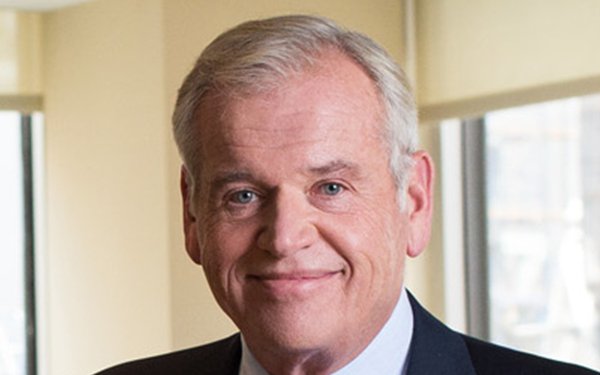Omnicom Revenue, Profit Fall In 2017
- by Steve McClellan @mp_mcclellan, February 15, 2018

Omnicom reported a 27% drop in net income for the fourth quarter to $254.4 million on a 1.5% dip in revenue to $4.2 billion. Organic revenue growth for the period was 1.6%.
For the full year, net income was down 5.2% to $1.09 billion on a 0.9% revenue decline to $15.3 billion. Full-year organic revenue growth was 3%.
The company said the net income decline was the result of the new tax law passed in December. Profit would have grown for the year and the fourth quarter if the law had not been enacted, per the company.
Going forward, however, company CEO John Wren told analysts on an earnings call that the firm would benefit from lower corporate tax rates imposed by the new law. Consumer spending may also rise, leading to increased efforts by marketers to capture those dollars.
Revenues were impacted partly by a decrease in acquisition revenue and the disposal of certain assets. The firm’s healthcare segment was also down, while the company’s branding operation “began to stabilize” by the end of the year, Wren told analysts.
advertisement
advertisement
North America posted an organic revenue decline of 0.8% in the fourth quarter and was up 0.6% for the full year. Wren noted that client project work, often key to determining the strength of the fourth quarter, was softer than expected this year.
Wren also noted that the firm’s programmatic business, Accuen has been fully embedded in the company’s three big media shops — OMD, PHD and Hearts & Science. That transition also impacted revenues, per Wren, who noted some clients are opting out of the company’s performance-based programmatic offering.
U.S. programmatic revenues were $17 million less in the fourth quarter versus the prior-year period.
The Euro markets organic growth were up a combined 8.2% in the fourth quarter and 8% for the full year, while the UK was down less than a percentage point in the fourth quarter and up 5.1% for the full year.
The Asia-Pacific region showed growth of almost 2% in the fourth quarter and was up 5.8% for the year. Latin America was down slightly in the fourth quarter and up 0.6% year-over-year.
Wren noted that while new business activity was sluggish during the first nine months of the year, a number of new wins were recorded in the fourth quarter, the full impact of which will hit this year. Those wins include HP, more McDonald’s business, Intuit, more State Farm business and an unidentified pharma company.
Operating profit was up 3% in the fourth quarter and up 2.5% for the year to nearly $2.1 billion.
Current guidance for 2018 is organic growth of between 2% and 3%.



Where is this growth coming from when everyone says fee pressure and in-housing is on the rise? From whom are they gaining share?
B Sass, most of the buzz about going "in-house" refers to non-branding forms of "advertising", which are traditionally handled by specialist sales promotional shops or by the advertisers' sales division----not by branding agencies like Omnicom. Also, the push towards "consolidation" in agency rosters offers winning shops more billings in exchange for lower fees. As a result, the better run agencies are able to up the amount of billings handled per person workng on each account, thereby making respectable profits.
Thank you Ed. I guess the next question is who are these "better run agencies". If the pie isn't growing then has it become a zero sum game? Also, I'm not sure what you say is entirely right. Hasn't it become easier to do youtube/instagram content in house versus outsource to an agency? Is there really not in-sourcing going on across the branded advertising space?
B Sass, if you follow the more sensational headlines in some trade press articles or "opinion pieces" and heed the chicken circuit speeches you would certainly think that there is a huge upheaval going on. Yep, clients are finally fed up with media agencies---on all counts, not just digital media---and are taking matters into their own hands---meaning there is a stampede to go "in-house" and the media shops are doomed. In the real world, however, this vast groundswell of counter-agency activity is very hard to detect---except in the digital arena--- and mainly in sales promotional not branding efforts. It's only natural for the article writers and speech makers, to over sell---one might say, "hype"----their stories as a way to stir up interest and, sometimes there are other agendas in place. But people like myself deal in what is actually happening---and might realistically happen--- and this is how I see it. Of course, things may at some point change----in which case I'll take note of the new directions.